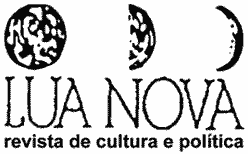This article examines a case of State-society interaction in policy making: the operation of the Gravataí River Basin Committee (Comitê Gravataí), created in 1989 in Rio Grande do Sul, Brazil. First, it is shown that, in spite of a high collaboration between state technical officials and NGO members, as of 2006 the committee has not achieved the goals for which it was created. Second, it is hold that in order to achieve those goals and to secure its survival, a participatory forum such as the Comitê Gravataí has to overcome serious restrictions regarding its technical, financial, and political sustainability. Third, it is argued that overcoming those restrictions entails a higher coordination between the committee, on the one hand, and governmental and non-governmental organizations, on the other. Fourth, it is stressed how the "diffused" action of the State ensures, in many situations, the participation of civil society organizations. The conclusion holds that even in cases of widely participatory policy-making, such as the Comitê Gravataí, their prospect depend, in multiple ways, on the state action.
Participation; Water Policy; Rio Grande do Sul
